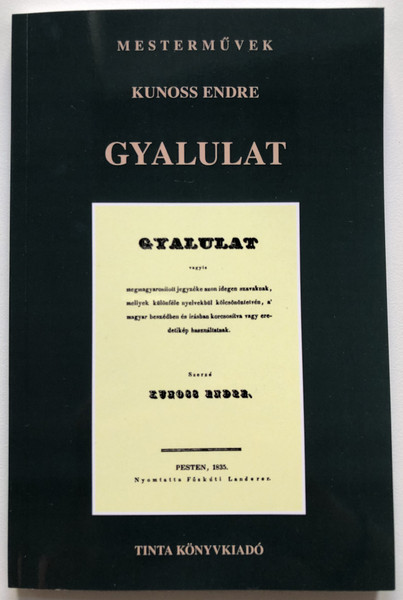Description
The Sociology of Social Capital- A kapcsolati tőke szociológiája / Sik Endre (2012) / Paperback
Product Information
- Author: Sik Endre
- Publisher: ELTE Társadalomtudományi Kar (TÁTK)
- Publication Year: 2012
- Place of Publication: Budapest
- Page Count: 204 pages
- Binding Type: Paperback (kartonált)
- Language: Hungarian
- ISBN: 9789633121184 / 978-9633121184
Overview
A kapcsolati tőke szociológiája (“The Sociology of Social Capital”) by Sik Endre is a comprehensive sociological exploration of how social capital operates within economic, political, and cultural contexts in Hungary. Published by ELTE TÁTK in 2012, this 204-page monograph examines the mechanisms, functions, and consequences of social capital, showing how personal connections shape opportunities, cooperation, and inequality.
The author, a renowned Hungarian sociologist, approaches the topic through three analytical dimensions—economic, political, and cultural—illustrating how relational networks influence behavior and outcomes. From kaláka (mutual help) and labor-market relationships to the taxis blockade of 1990 and the Aczél-network of socialism, Sik provides vivid examples of how informal connections became both a resource and a constraint in Hungarian society.
Ultimately, the book asks whether social capital acts as a public good or a “public bad”, exploring how deeply ingrained relationship-dependence (“kapcsolatérzékenység”) can hinder social trust and institutional fairness in post-socialist Hungary.
Hungarian Translation – Áttekintés
A kapcsolati tőke szociológiája Sik Endre szociológus átfogó műve a kapcsolati tőke társadalmi működéséről és hatásairól. A 2012-ben az ELTE Társadalomtudományi Karán (TÁTK) megjelent kötet bemutatja, hogyan formálják a személyes kapcsolatok a gazdasági, politikai és kulturális cselekvést, és miként válhat a kapcsolati tőke egyszerre erőforrássá és korláttá.
A szerző három nézőpontból közelíti meg témáját:
- Gazdasági dimenzióban elemzi a munkaerőpiac és a vállalkozói szféra „gyenge” és „erős” kapcsolatait, valamint a kaláka-hagyományt.
- Politikai dimenzióban a szocializmus „kapcsolatteremtő” működését és az Aczél-háló sajátosságait vizsgálja.
- Kulturális dimenzióban feltárja, hogyan vált Magyarország „kapcsolatérzékeny kultúrává”, ahol a társadalmi tőke egyszerre segíti és torzítja a közösségi működést.
A könyv központi kérdése: hogyan lesz a kapcsolati tőke a közjó forrásából „közrossz”, azaz a társadalmi egyenlőtlenség és korrupció táptalaja?
Product Features
- Subject Area: Sociology, Social Networks, Political Economy
- Focus: The dynamics and consequences of social capital in Hungarian society
- Approach: Empirical, theoretical, and historical sociological analysis
-
Key Topics:
Audience: Scholars, students of sociology and political science, policymakers, and readers interested in post-socialist societies- The role of personal ties in economic and political life
- The persistence of informal networks from socialism to post-socialism
- Case studies such as the 1990 taxis blockade
- The concept of relationship sensitivity in Hungarian culture
- The transformation of social capital from public good to public problem
Interesting Facts
- Groundbreaking Hungarian Analysis: Sik Endre is among the first Hungarian sociologists to systematically study social capital as both a cultural pattern and structural force shaping social life.
- The “Aczél-network”: The book revisits the informal political power structures of socialism through the figure of Aczél György, illustrating how influence operated beyond official institutions.
- The Taxis Blockade Case Study: Analyzing the 1990 Hungarian taxi blockade, Sik demonstrates how spontaneous collective action and informal ties can mobilize society during crisis situations.
- Concept of “Relationship Sensitivity”: The author coins the term kapcsolatérzékeny kultúra (relationship-sensitive culture) to describe Hungary’s reliance on interpersonal connections, a legacy of both history and social adaptation.
Hungarian Translation – Érdekes Tények
- Úttörő elemzés: Sik Endre az elsők között vizsgálta a kapcsolati tőkét mint a társadalmi működés alapvető – de gyakran torzító – tényezőjét.
- Aczél-háló: A szocializmus rejtett hatalmi struktúráit az Aczél György nevéhez fűződő kapcsolatrendszeren keresztül mutatja be.
- Taxisblokád mint esettanulmány: A 1990-es taxisblokád elemzésén keresztül tárja fel, hogyan mozgósítanak a személyes kapcsolatok válsághelyzetben.
- Kapcsolatérzékeny kultúra: A szerző bevezeti ezt a fogalmat Magyarország jellemzésére, ahol a személyes kapcsolatok a gazdasági és politikai működés kulcselemei.
Publisher
Published by ELTE Társadalomtudományi Kar (TÁTK), Budapest, 2012. All rights reserved.
We value your feedback! Share your experience with this product to help others make informed decisions. Your review is important to us!
Hashtags
-
English: #SikEndre #SocialCapital #SociologyHungary #ELTETATK #PoliticalSociology #NetworkTheory #PostSocialism #HungarianSociety #SocialInequality #AczelNetwork
-
Hungarian (Címkék): #SikEndre #KapcsolatiTokeSzociologiaja #Szociologia #ELTETATK #TarsadalmiToke #Kapcsolathalo #Posztszocializmus #MagyarTarsadalom #AczelHalo #Taxisblokad








